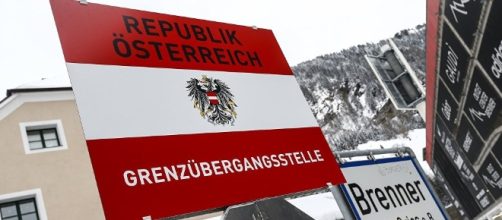The Austrian government has caused a political row with Italy as they mobilize their military to enforce border controls. The Austrian ambassador was called to explain the actions of his country to the Italian government, and the Austrian Defense Minister, Hans Peter Doskozil, stated categorically that the military deployment was of a defensive nature.
2017 has seen a large influx of refugees to Italy, and Austria has no interest in welcoming illegal immigrants into Austrian territory. The deployment consists of a number of armored vehicles that could serve as roadblocks, and as many as 250 active army troops.
More than 80,000 immigrants have arrived so far this year in Italy, and Austria is concerned that Italy may not be able to keep them all within their territory. This sort of action isn't new for Austria, and in the summer of 2015 they took similar measures along their border with Slovenia.
A growing concern
The theme of illegal migration to Europe isn't new, and it has been putting pressure on governments across the continent for many years. So far this year there have been as many as 100,000 illegal immigrants reported to have landed in Europe, with the vast majority currently in Italy.
This number may be low, as many people who enter European territory illegally aren't counted. While the Italian federal government has raised alarm in regards to the sustainability of the situation they find themselves in, the governor of South Tyrol, Arno Kompatscher, pointed out that this wasn't the first time Austria has employed border controls like this.
The United Nations High Commissioner for Refugees (UNHCR) has sided with the Italian government, and stated plainly that more has to be done to stem the tide of asylum seekers. While the journey between Africa and Italy is a harrowing one, these appear to be many who are willing to risk death at sea to escape Africa.
Unknown consequences
The upcoming election in Austria is expected to demonstrate the increasing tensions between legal residents in Austria, and the immigrants that are flooding Europe. The anti-immigration Austrian Freedom Party (FPÖ) has been rising in popularity, and if they gain power there may be long lasting effects to the Schengen Zone treaties.
Despite the many immigrants that are arriving to Europe, UNHCR estimates that only about 30% of them are granted some form of legal residence.
This leaves them in a very tight spot from a legal perspective, and many worry what kind of social dynamic may develop as a result.
In Germany Chancellor Merkel's decision to allow 1,000,000 plus refugees from Syria has met with fierce criticism, and may be the thing that leads to meaningful political change.
The situation in Sweden has also been in the spotlight, with the nation's most popular music festival having to cancel its performances due to rising problems with gang rape. The cultural origin of criminal suspects in Sweden is no longer recorded, but the rise of public gang rape in Sweden over the last decade mirrors their efforts to house refugees.


